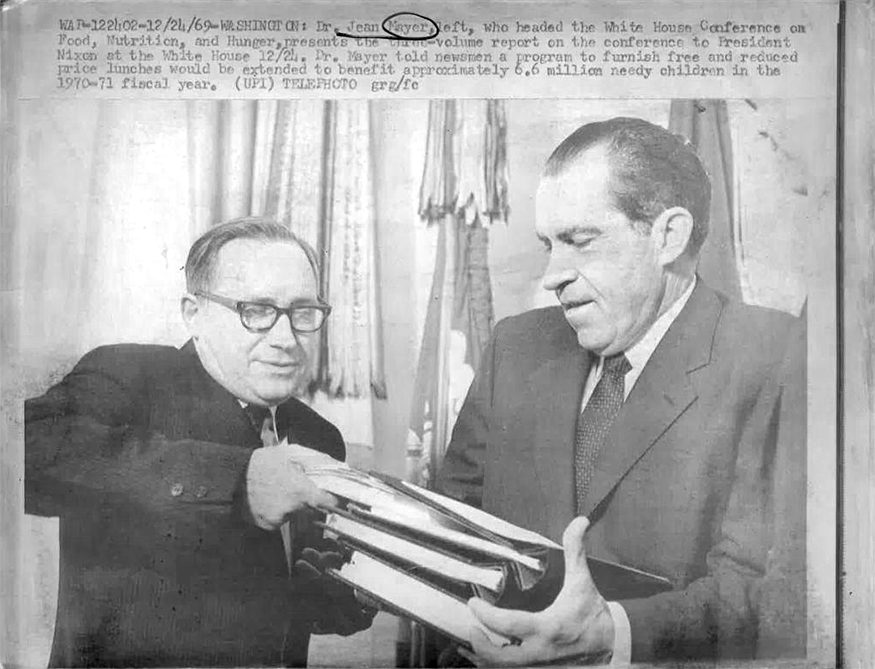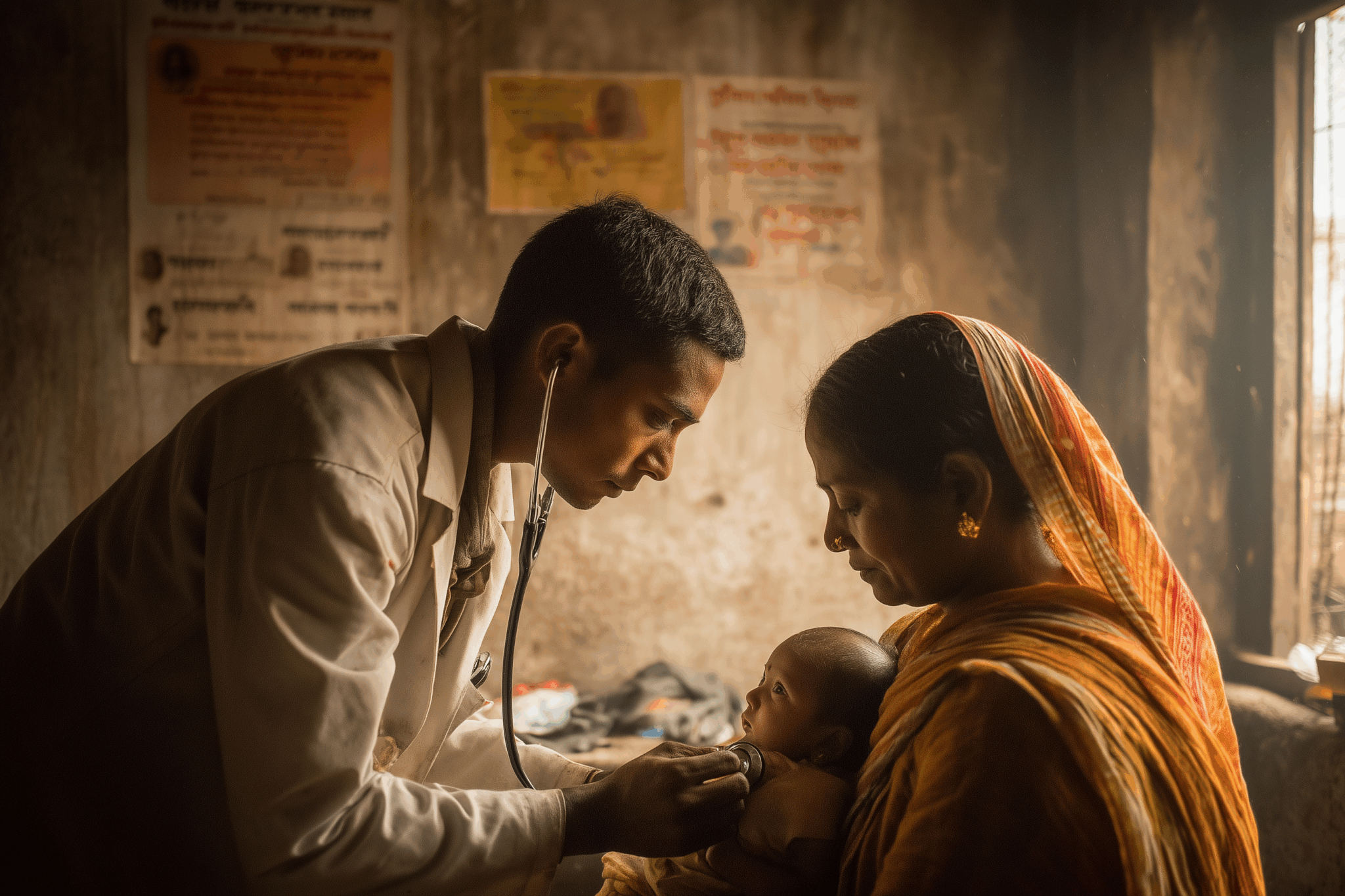By Todd Post
In September, the Biden administration will convene a White House Conference on Hunger, Nutrition, and Health. Bread for the World and other advocates on hunger and nutrition issues are thrilled. This is only the second time a U.S. administration has convened a conference on the nexus of hunger, nutrition, and health; the first was in 1969, during the Nixon administration.
The first White House conference was hailed as a success, spurring Congress to enact landmark legislation that expanded the Food Stamp and school meal programs; established the Special Supplemental Nutrition Program for Women, Infants, and Children, better known as WIC; and paved the way for development of the Dietary Guidelines for Americans.
In many ways, the United States is a much different country now than it was in 1969, while in other ways, it is not so different. Hunger and poor nutrition still pose major risks to the health of tens of millions of people. Even beyond the tragedy of so many illnesses and premature deaths of individuals, hunger contributes to skyrocketing health care expenditures. It also sustains longstanding health disparities between communities of Black, Indigenous, and other People of Color (BIPOC) and other Americans, making it far more difficult to achieve racial equity.
Bread for the World has long supported federal nutrition programs, the first line of defense against hunger in the United States. The Supplemental Nutrition Assistance Program (SNAP) is particularly important, with more than 41 million people currently participating. Given the program’s reach and impact, the United States will almost certainly need to improve SNAP in order to end hunger in a lasting way.
One significant problem is that even with tens of millions of low-income people receiving monthly SNAP benefits to help them put food on the table, millions of other people at risk of hunger are ineligible. They include individuals with felony drug convictions, college students, and lawfully present immigrants who have been residents for less than five years. Those who are ineligible can turn to charities for help, but charitable providers are the first to agree that they cannot substitute for SNAP benefits.
Improvements in federal nutrition programs and eligibility criteria are important, but by themselves, they cannot end hunger in the United States. The White House should promote a broader, more holistic view of what is needed to reach the goal.
Food deserts are omnipresent in urban communities of color, a result of decades of disinvestment. Having nowhere to shop for food except corner stores means that it is nearly impossible to eat a healthy diet. This is a separate problem from the needed improvements in SNAP and one that the White House Conference should help address.
A broader measure that increased the family grocery budget was the improvements in the Child Tax Credit included in the American Rescue Plan. Many low-income families were eligible for the credit for the first time, and they spent the additional income on household necessities, mostly food. Hunger among families with children fell immediately—by 24 percent.
Other improvements suggested by a more holistic perspective on hunger make up a “1,000 Days infrastructure,” whose provisions Bread for the World worked toward having included in the proposed Build Back Better legislation. This period between pregnancy and a child’s second birthday is a crucial nutrition window, when good nutrition delivers the greatest potential for successful lifelong outcomes.
WIC is a remarkable success story of investments in the 1,000 days, but the country also needs to strengthen other components of such an infrastructure, from health care to childcare to paid leave. Just one example from the large body of evidence for these needs: the staggering levels of maternal and infant mortality in the United States compared to other high-income nations.
In November 2018, then Vice President Joe Biden spoke at Bread for the World’s 15th Annual Gala to End Hunger, held in New York City. He said: “There is nothing beyond our capacity in this country. We just have to summon the political will to act.”
Bread could not agree more. The idea that ending hunger hinges on building the political will to do so is a core tenet that has inspired our advocacy for nearly 50 years. The White House conference this September can be instrumental in mobilizing the political will necessary to end hunger in the United States for good.
Todd Post is senior domestic policy advisor with Bread for the World.



